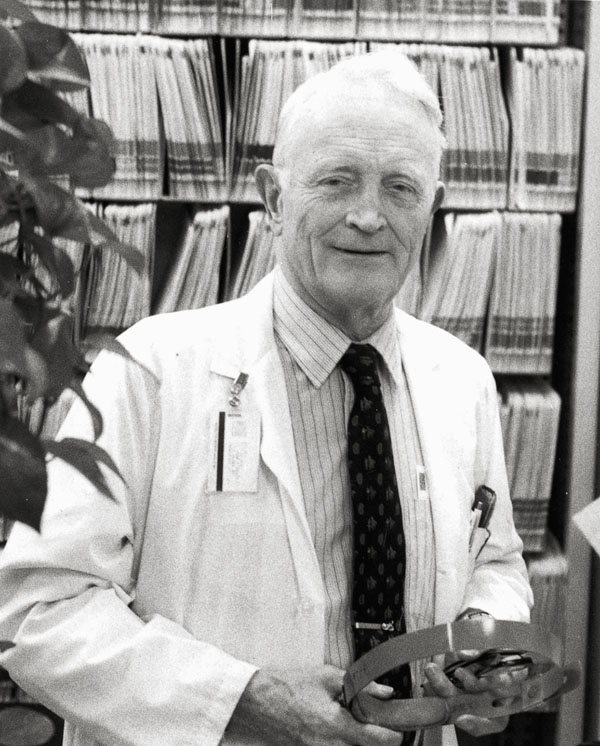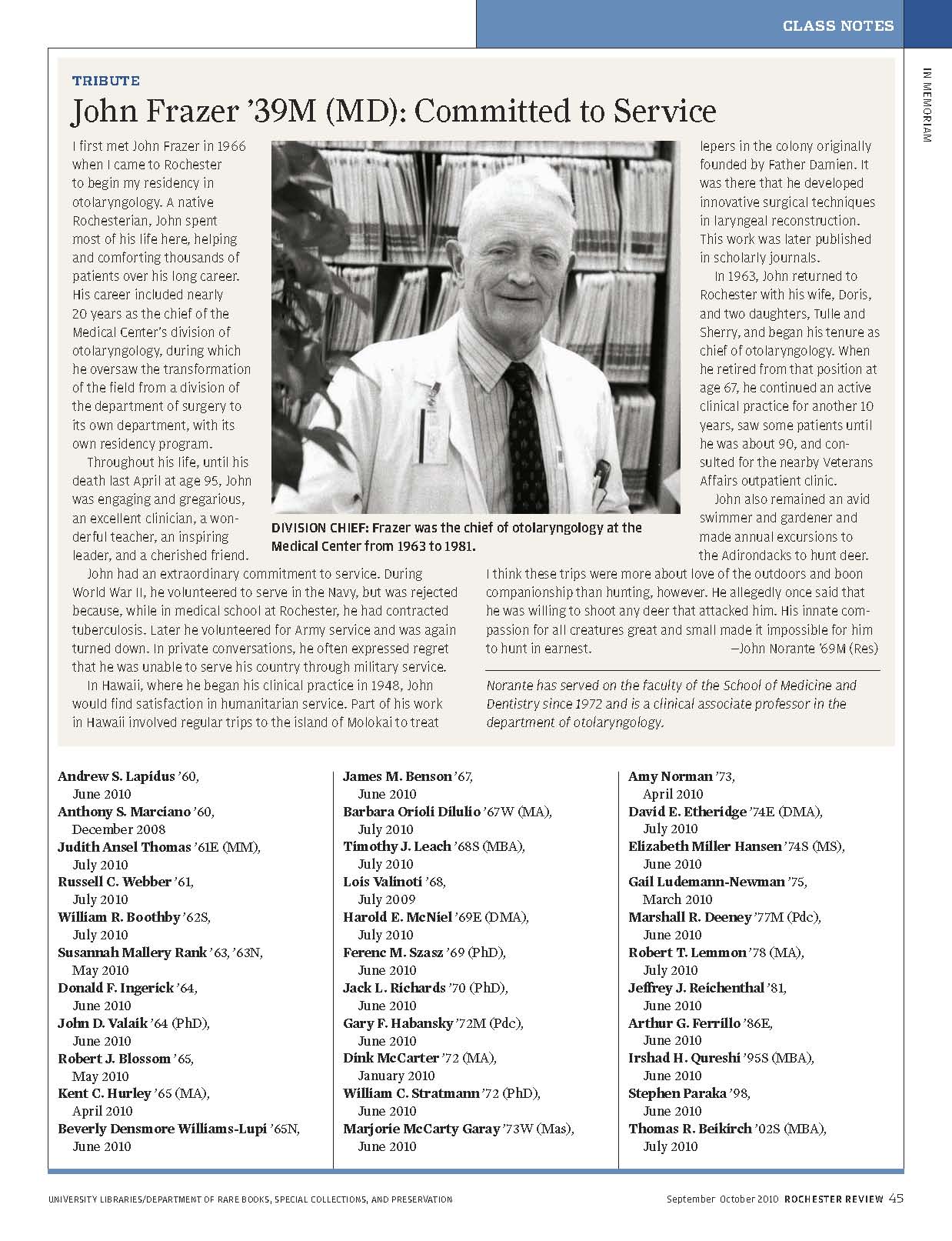In Memoriam
 DIVISION CHIEF: Frazer was the chief of otolaryngology at the Medical Center from 1963 to 1981. (Photo: University Libraries/Department of Rare Books, Special Collections, and Preservation)
DIVISION CHIEF: Frazer was the chief of otolaryngology at the Medical Center from 1963 to 1981. (Photo: University Libraries/Department of Rare Books, Special Collections, and Preservation)I first met John Frazer in 1966 when I came to Rochester to begin my residency in otolaryngology. A native Rochesterian, John spent most of his life here, helping and comforting thousands of patients over his long career. His career included nearly 20 years as the chief of the Medical Center’s division of otolaryngology, during which he oversaw the transformation of the field from a division of the department of surgery to its own department, with its own residency program.
Throughout his life, until his death last April at age 95, John was engaging and gregarious, an excellent clinician, a wonderful teacher, an inspiring leader, and a cherished friend.
John had an extraordinary commitment to service. During World War II, he volunteered to serve in the Navy, but was rejected because, while in medical school at Rochester, he had contracted tuberculosis. Later he volunteered for Army service and was again turned down. In private conversations, he often expressed regret that he was unable to serve his country through military service.
In Hawaii, where he began his clinical practice in 1948, John would find satisfaction in humanitarian service. Part of his work in Hawaii involved regular trips to the island of Molokai to treat lepers in the colony originally founded by Father Damien. It was there that he developed innovative surgical techniques in laryngeal reconstruction. This work was later published in scholarly journals.
In 1963, John returned to Rochester with his wife, Doris, and two daughters, Tulle and Sherry, and began his tenure as chief of otolaryngology. When he retired from that position at age 67, he continued an active clinical practice for another 10 years, saw some patients until he was about 90, and consulted for the nearby Veterans Affairs outpatient clinic.
John also remained an avid swimmer and gardener and made annual excursions to the Adirondacks to hunt deer. I think these trips were more about love of the outdoors and boon companionship than hunting, however. He allegedly once said that he was willing to shoot any deer that attacked him. His innate compassion for all creatures great and small made it impossible for him to hunt in earnest.
—John Norante ’69M (Res)
Norante has served on the faculty of the School of Medicine and Dentistry since 1972 and is a clinical associate professor in the department of otolaryngology.

